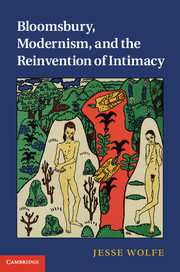Book contents
- Frontmatter
- Contents
- List of figures
- List of tables
- Acknowledgments
- Introduction: narrating Bloomsbury
- PART I PHILOSOPHICAL BACKGROUNDS
- PART II DEFEATED HUSBANDS
- PART III DOMESTIC ANGELS
- 5 Woolf's sane woman in the attic
- 6 A return to essences
- Conclusion: the prescience of the two Bloomsburies
- Appendix
- Notes
- Bibliography
- Index
5 - Woolf's sane woman in the attic
from PART III - DOMESTIC ANGELS
Published online by Cambridge University Press: 05 December 2011
- Frontmatter
- Contents
- List of figures
- List of tables
- Acknowledgments
- Introduction: narrating Bloomsbury
- PART I PHILOSOPHICAL BACKGROUNDS
- PART II DEFEATED HUSBANDS
- PART III DOMESTIC ANGELS
- 5 Woolf's sane woman in the attic
- 6 A return to essences
- Conclusion: the prescience of the two Bloomsburies
- Appendix
- Notes
- Bibliography
- Index
Summary
Oddly enough, she [Clarissa] was one of the most thoroughgoing sceptics he [Peter] had ever met … she said to herself, As we are a doomed race, chained to a sinking ship … let us, at any rate, do our part; mitigate the sufferings of our fellow-prisoners; decorate the dungeon with flowers and air cushions … she evolved this atheist's religion of doing good for the sake of goodness.
She could see what she lacked … something central which permeated; something warm … Then, for that moment, she had seen an illumination; a match burning in a crocus; an inner meaning almost expressed.
They had to be together, share with each other, fight with each other, quarrel with each other. But … when Evans was killed … the panic was on [Septimus] – that he could not feel.
In its ambivalent portrayal of its heroine's marriage, Mrs Dalloway provides a crowning example of Bloomsbury's anti-foundational pragmatism – a complex response to the paradoxes of modern life that numerous Bloomsburian texts share with other major modernist works. Conrad's Heart of Darkness and Freud's Civilization and Its Discontents both expose the absence of a foundation (natural or god-given) where a foundation would give comfort, but hold out civilization – a product of human artifice – as a surrogate refuge. Conrad's Marlow analyzes threats internal to a civilized society and individual.
- Type
- Chapter
- Information
- Bloomsbury, Modernism, and the Reinvention of Intimacy , pp. 143 - 163Publisher: Cambridge University PressPrint publication year: 2011



